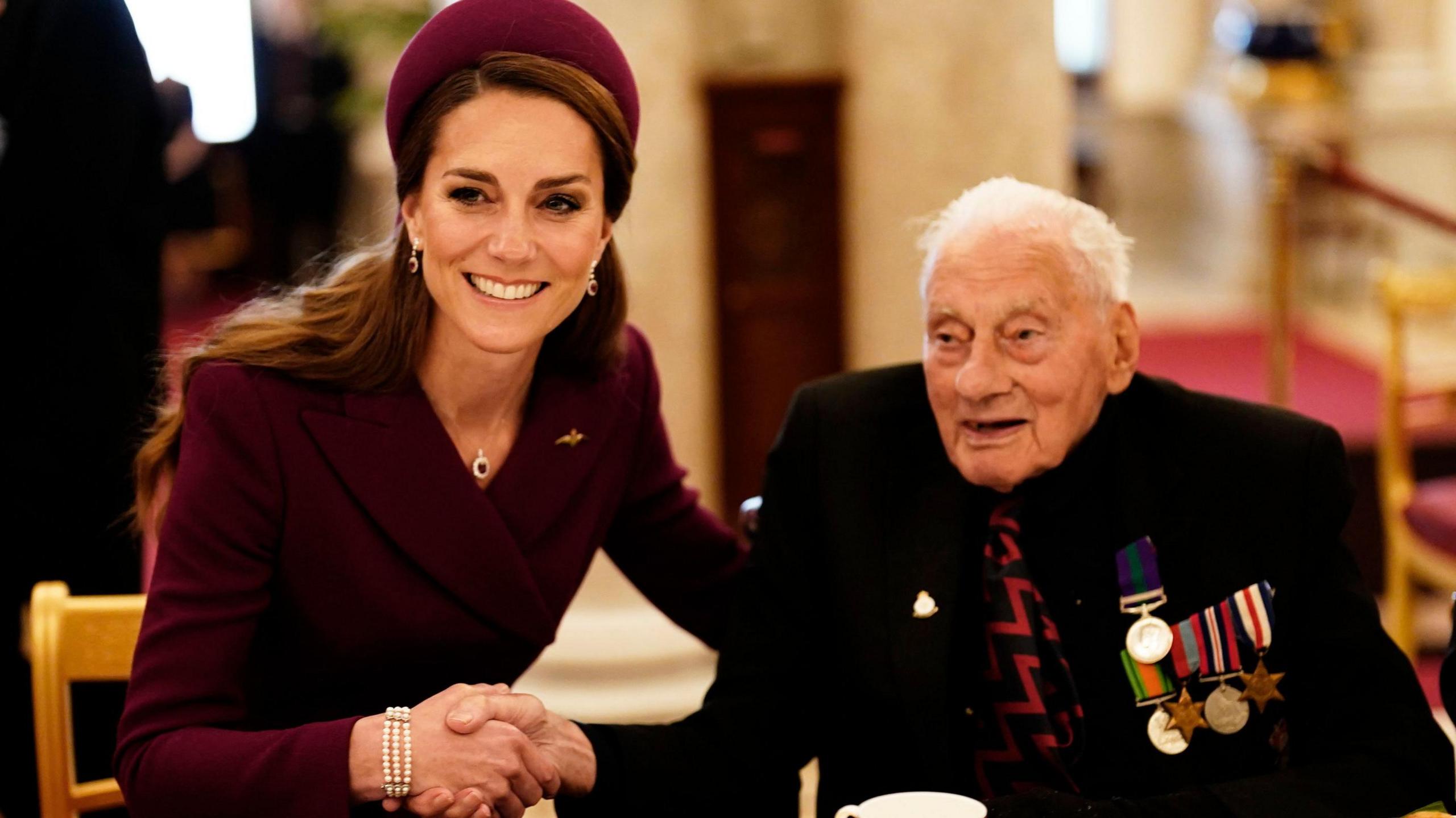VE Day 80: 'Trouble just fell from our shoulders'
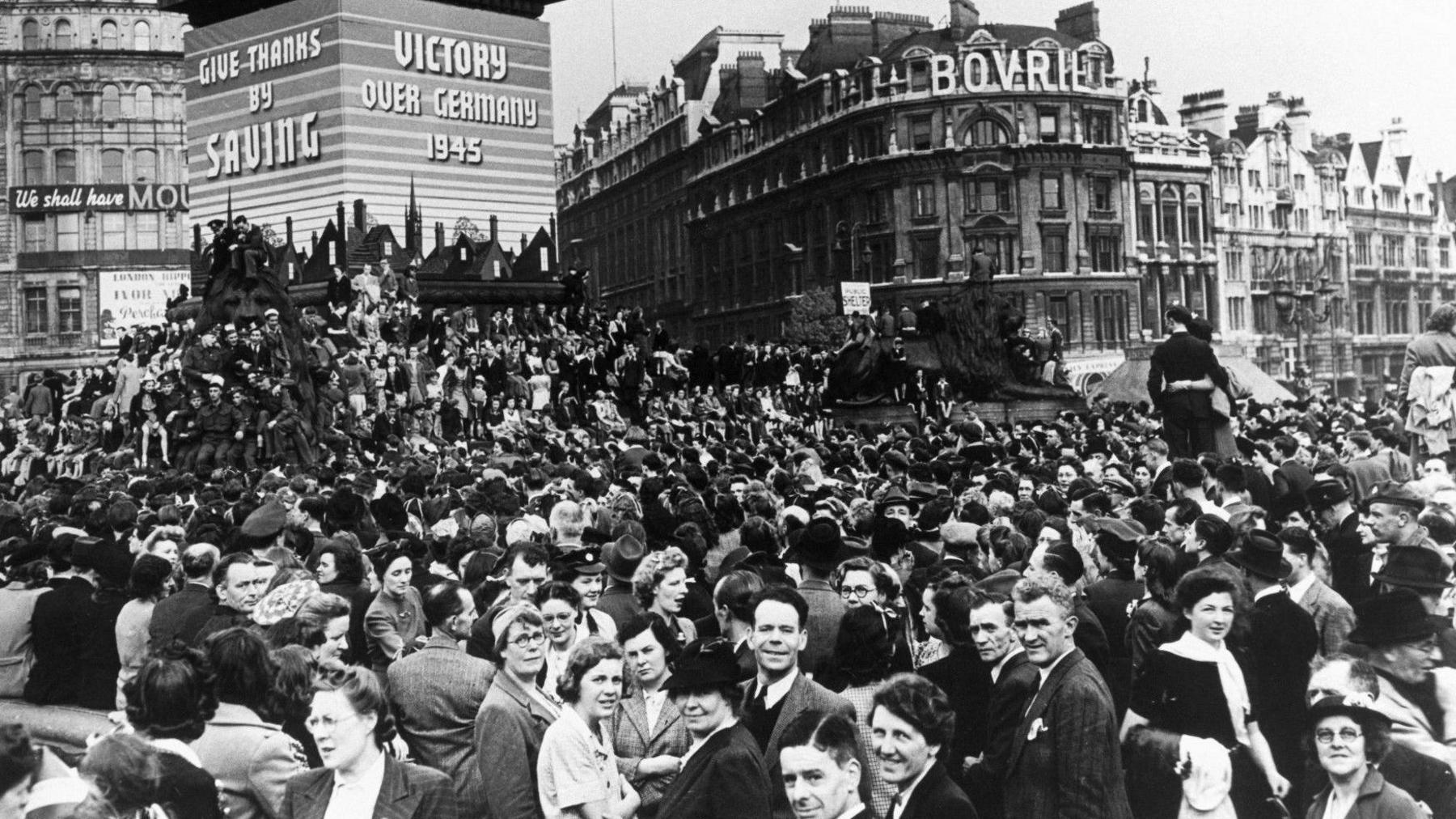
London celebrated the end of World War Two across the capital - including in Trafalgar Square
- Published
Celebrations have been taking place across the capital to mark the anniversary of the day fighting Nazi Germany came to an end.
People who lived through VE (Victory in Europe) Day have been in touch with BBC London to share their memories of 8 May 1945.
"London was just one big party," said Audrey Lamontagne-Defriez.
"Trouble fell from our shoulders because we wouldn't be bombed anymore.
"We didn't have to worry about air raid shelters anymore."
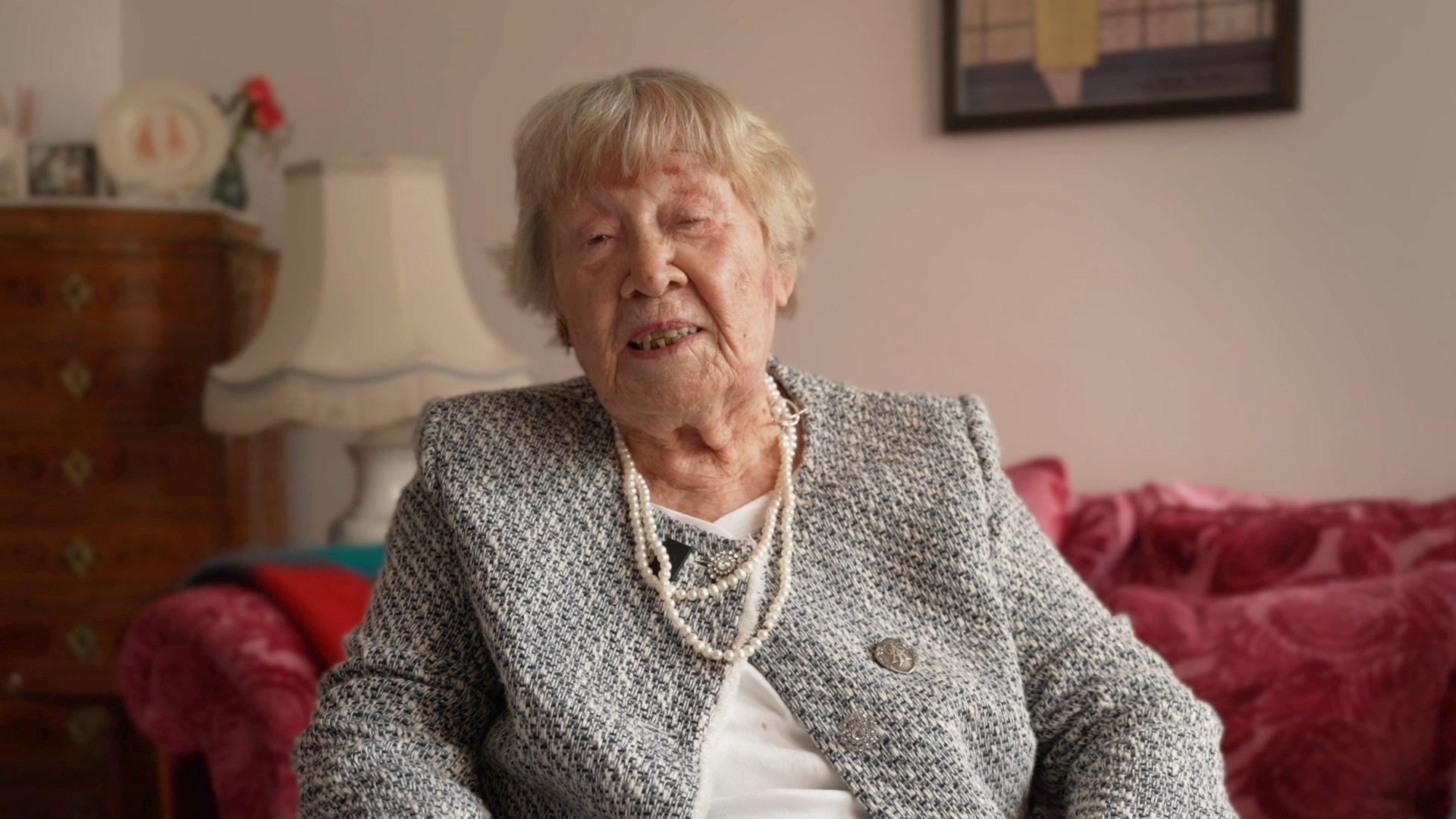
Audrey remembers celebrating VE Day at the age of 15 in Trafalgar Square
Ms Lamontagne-Defriez, who was 15 at the time, remembered the declaration of a national holiday as she and a cousin made their way to central London.
"We happened to have a cousin called Jack staying with us. Jack and I went to Trafalgar Square and there were so many people."
She also remembered getting a letter, as all schoolchildren did, from the King thanking them for their efforts during the war.
"It told us we'd all shown a good spirit and hopefully the spirit would continue with us for the rest of our lives".
The 95-year-old said she could not forget the feeling of "great relief" and how "ecstatic" everyone was.
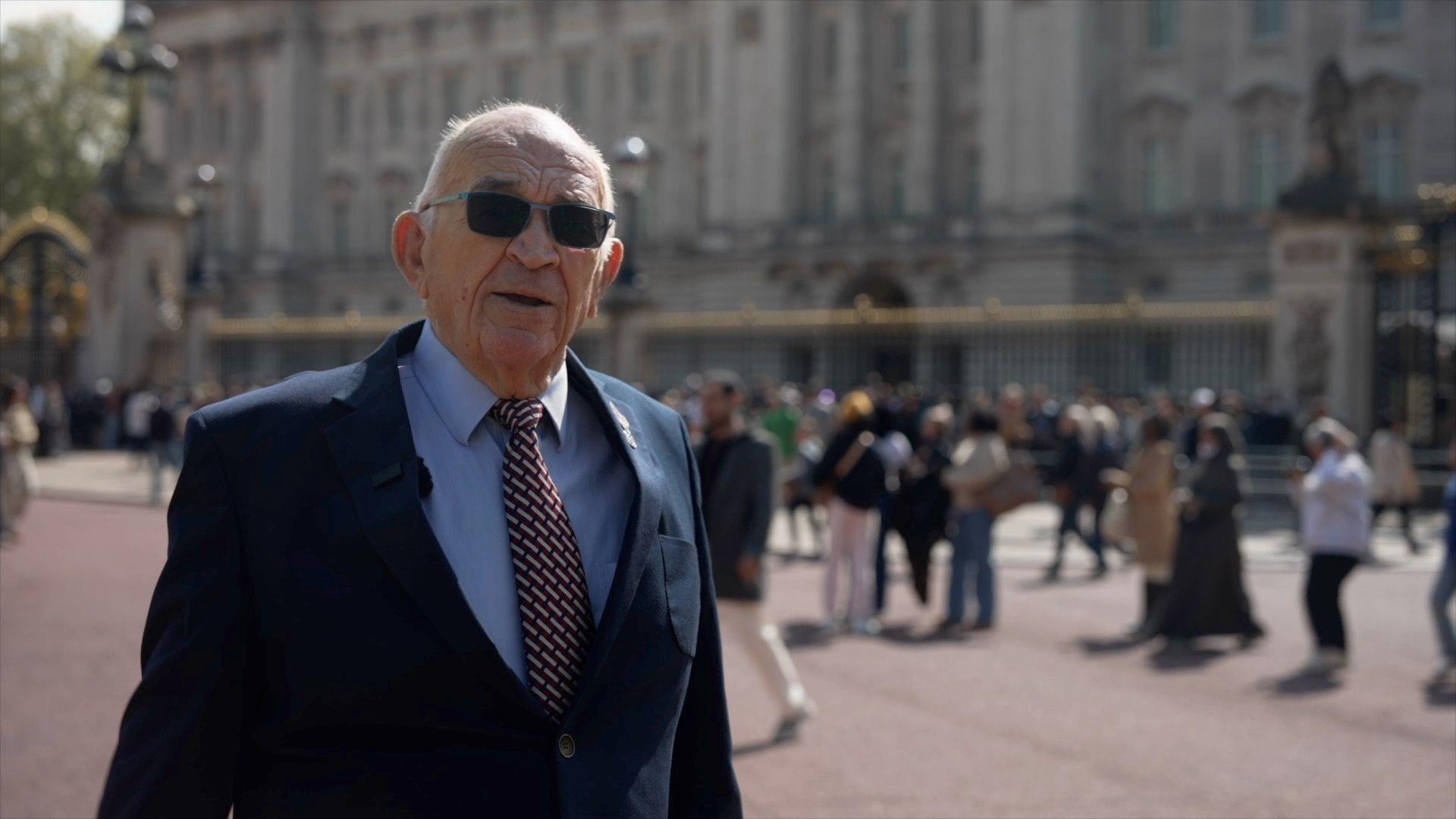
Bob remembered celebrating VE Day outside Buckingham Palace 80 years ago
Bob Savidge was an eight-year-old when he, with his parents and big brother, joined the crowds outside Buckingham Palace on VE Day when the King and Queen, with Churchill, came out on the balcony.
"We celebrated with all these thousands of people, all the way up the Mall and singing, dancing and just having a great time at the end of the war."
Mr Savidge and his family lived in Lambeth during World War Two, before bombing enforced moves to Edgware, and then Stockport. He said he and his family were in the house at the time of the bomb, and got out without injury. However, they lost virtually all their furniture and clothes.
"Mum and Dad were absolute royalists and Dad was in the London Fire Service.
"There were people on each other's shoulders, clapping, cheering, there were people hugging and kissing each other. It was just amazing.
"It was a time of real worry for parents and for families, and everybody as a whole, but everybody looked after each other, everybody was one big family."
This year, Mr Savidge will celebrate VE Day with some friends.
"We will be having songs and recollections of what went on in the war - and a glass to celebrate that we've made this 80th year."
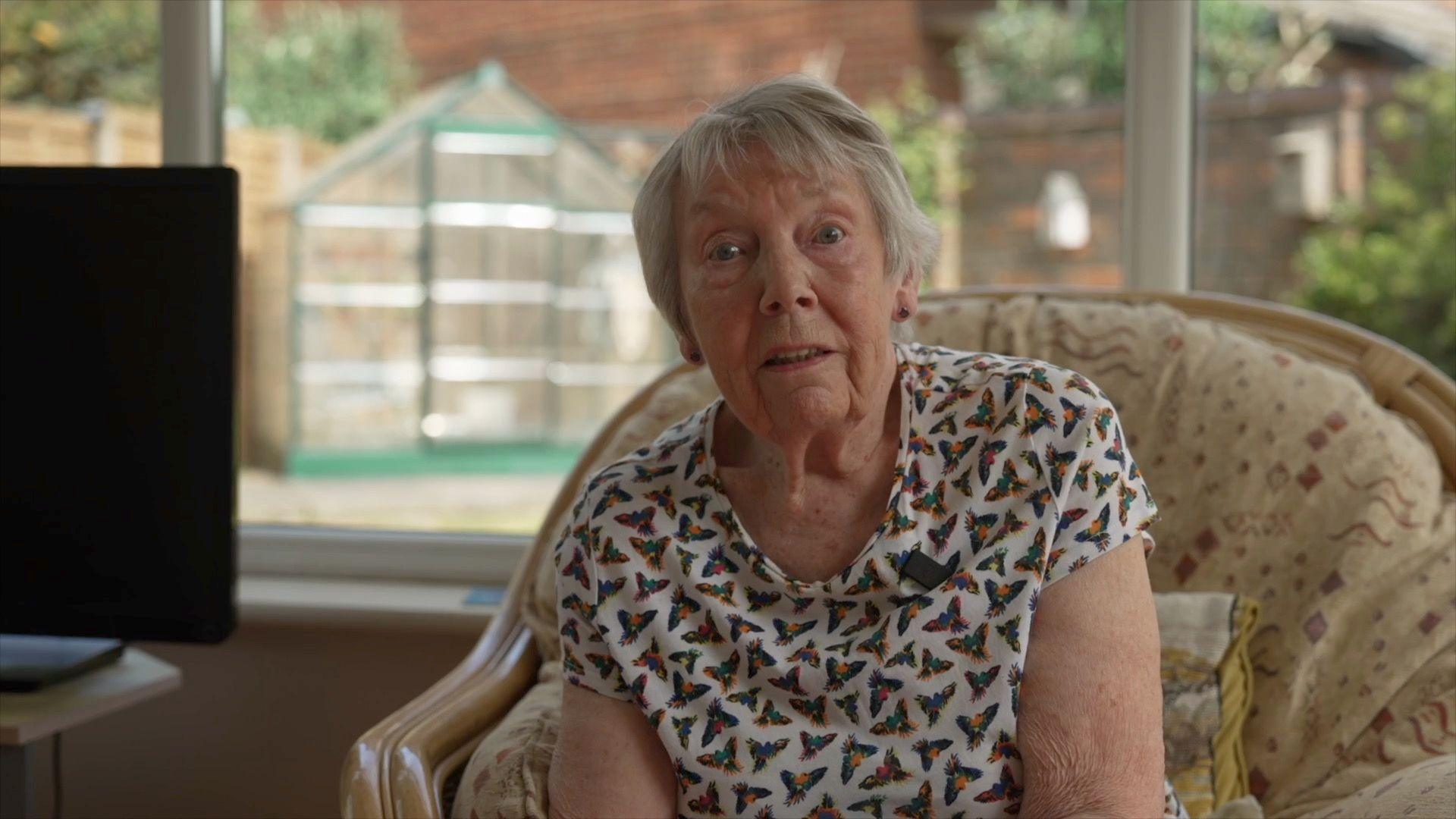
Sheila remembers celebrating 80 years ago in Colliers Wood with her family and neighbours in the street
"Everybody was so happy and glad that the war was eventually over," Sheila Ann Thomas told BBC London.
Born in Wembley in June 1935, Ms Thomas and her parents and younger sister travelled by tube to her grandparents' home in Colliers Wood, south London, to celebrate.
"The family moved their piano into the front garden, together with the tin bath and the washboard.
"My father used to play the ukulele, another uncle played the piano accordion, so the neighbours were dancing and singing, celebrating in the street."
She said this year she will be "reminiscing about my time 80 years ago and thinking how fortunate I am to be here celebrating".
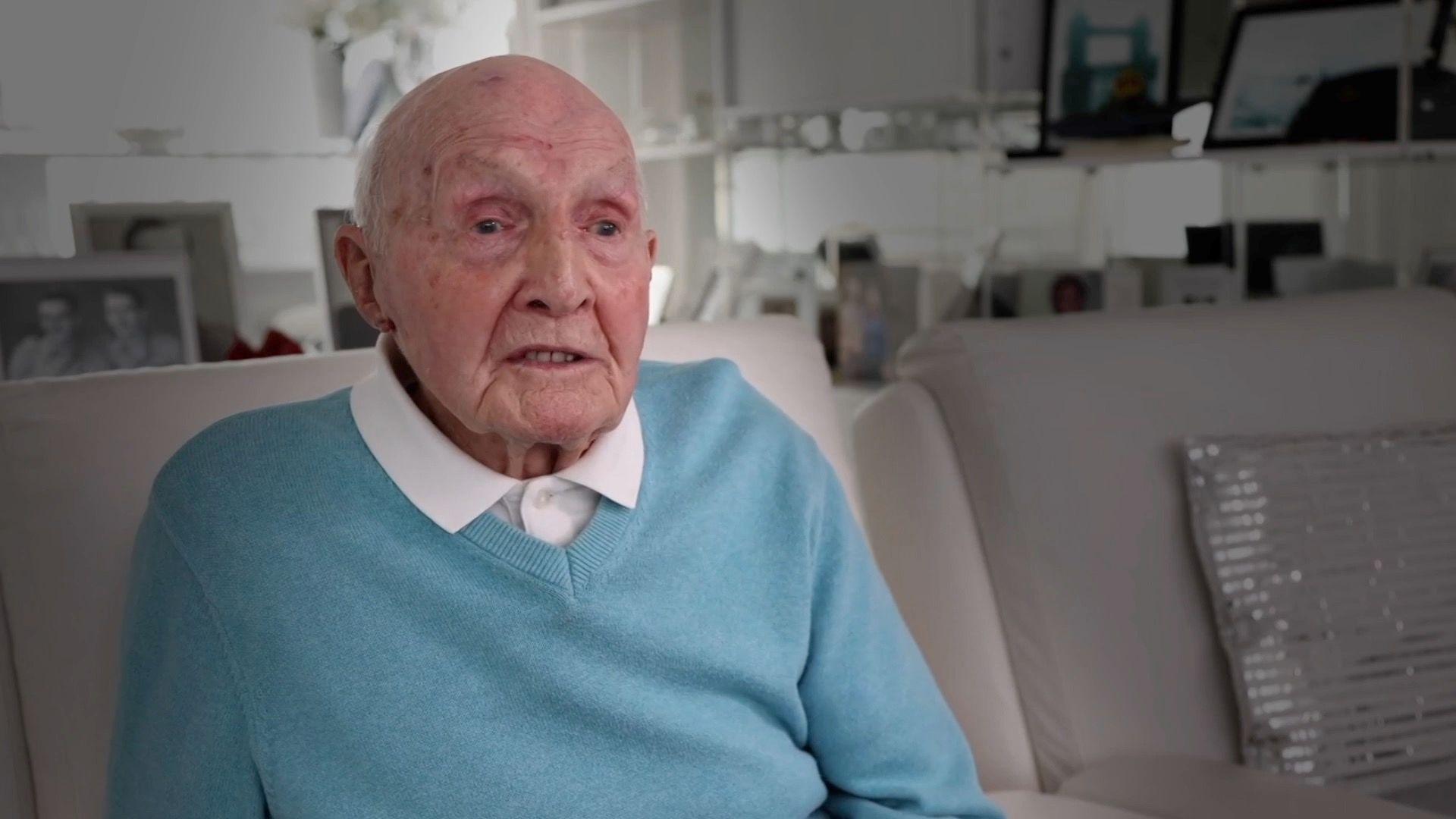
100-year-old Leonard fought in the RAF during the war
Leonard Spratt, who recently turned 100, was an RAF wireless operator during the conflict and remembered being "quite relieved".
He said he used to "fly up and down the north African coast and we helped to bring the U-boats in."
"I just wanted it all over and to get home. I was proud but I was just glad to have survived the war."
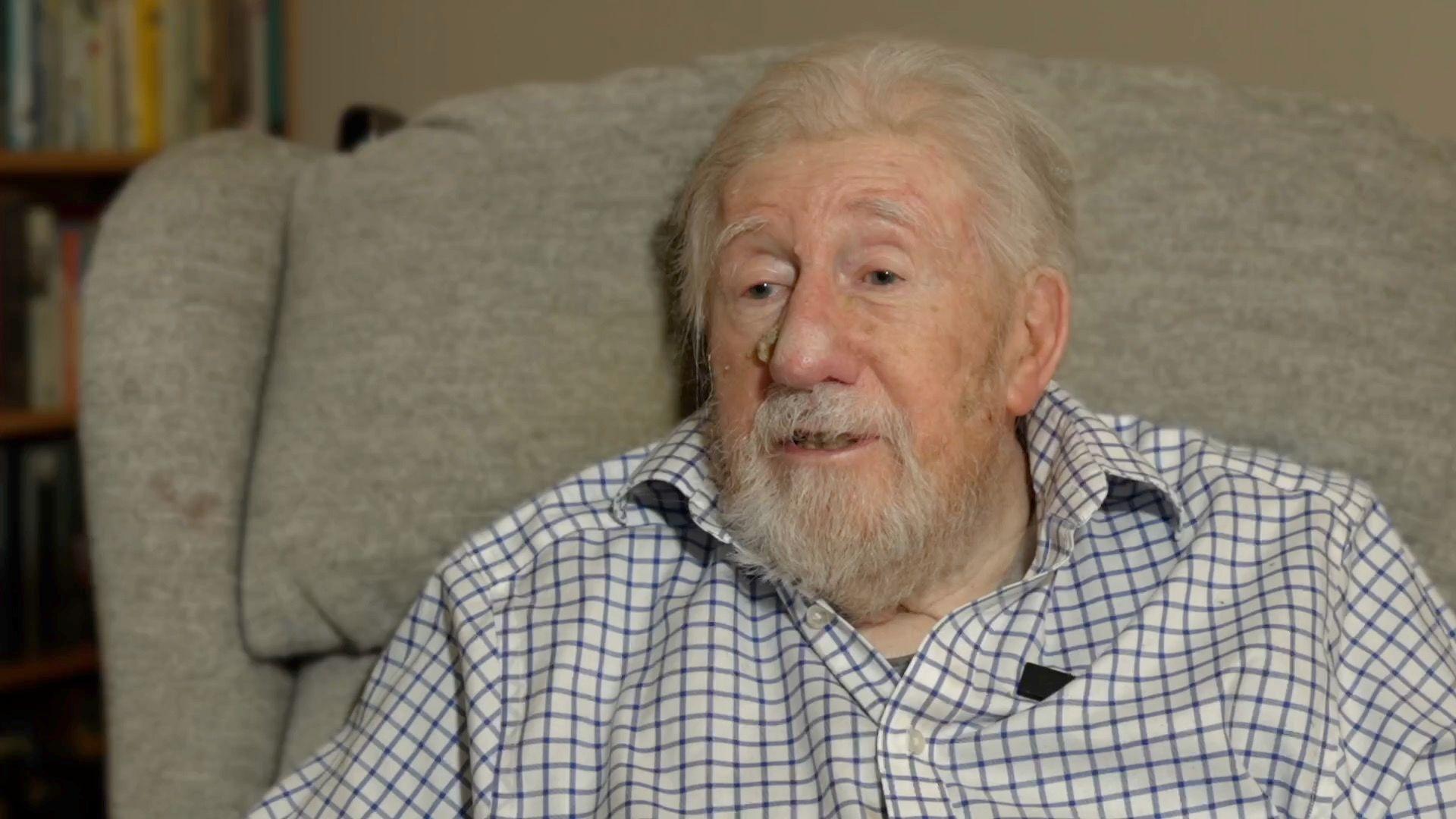
Trevor says he remembers a great sense of relief and happiness from 8 May 1945
Trevor Laugharne, whose birthday is on VE Day, said one of his best memories "was when we had a street party on the 8 May and I remember, because it's my birthday, I stood on a chair and they all sang happy birthday and I got an extra helping of jelly."
Mr Laugharn grew up in Leyton and Chingford during the Blitz - the German bombing campaign that lasted eight months - and was evacuated to Wales for a while.
"Most of the air raid shelters had been built to withstand almost direct hits.
"I have memories of being swept up in my father's arms and being carried down into the shelter - some of those bombs really did cause terrible destruction."
VE Day, he said, brought a "great sense of relief and happiness and joy and dancing about in the street and doing the conga.
"I remember as a boy, I thought it was a touch of madness."


Listen to the best of BBC Radio London on Sounds and follow BBC London on Facebook, external, X, external and Instagram, external. Send your story ideas to hello.bbclondon@bbc.co.uk, external
Related topics
- Published30 April
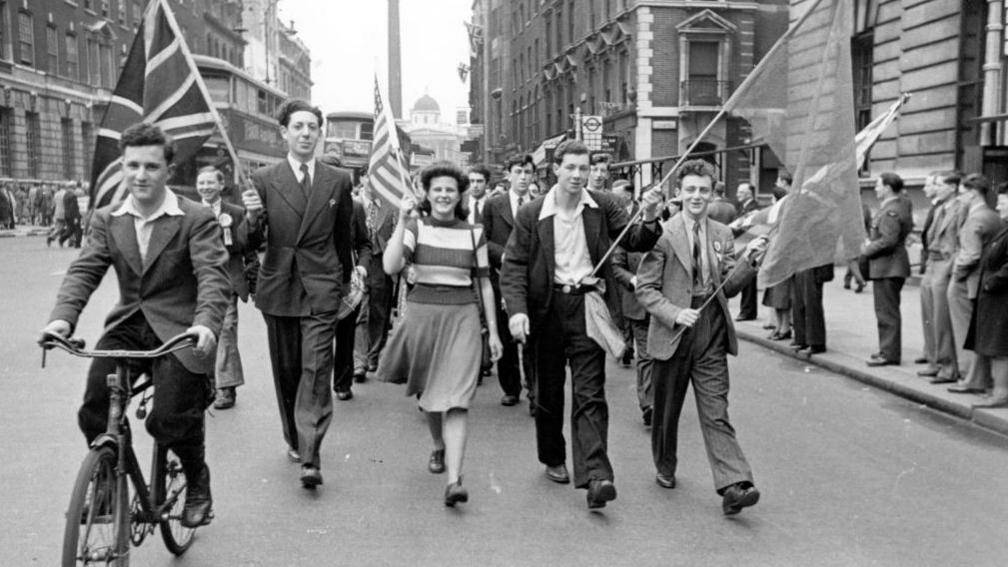
- Published6 May
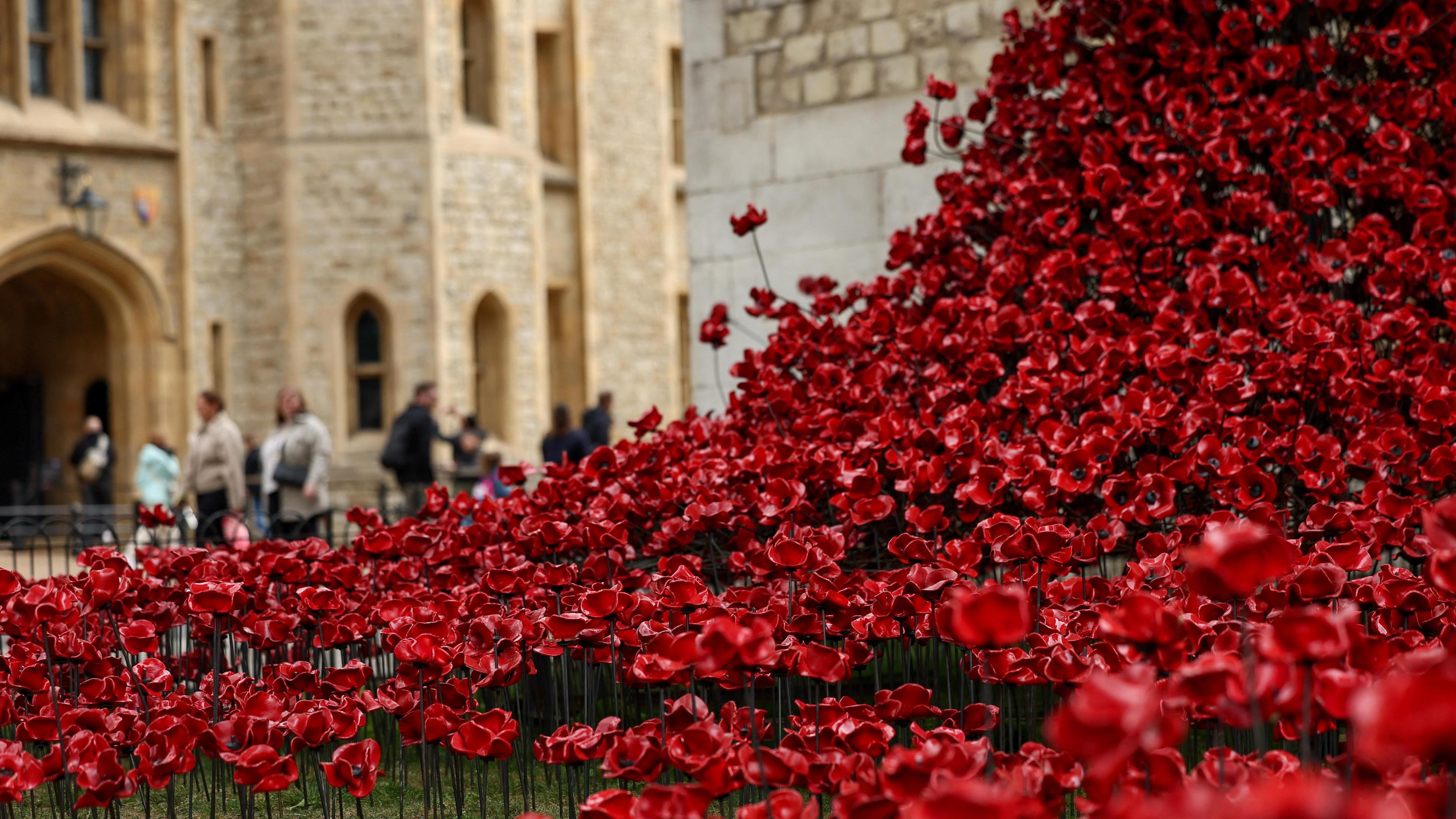
- Published5 May
